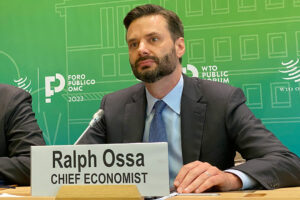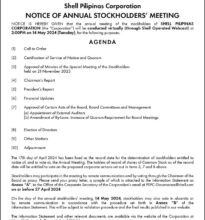A journalist’s life

By Gary Mariano
Book ReviewUnder the Bridge: MemoirsBy Miguel Patolot
UNTIL three months ago, I had no idea who Miguel Patolot was. Growing up in a newspaper environment, admiring journalists and desiring to be one, I thought, how could I have missed him, a top editor with a leading newspaper. As a teacher of an introductory course on journalism, I made my students collect oral histories of nearly 400 journalists. The students never found Mr. Patolot and those they interviewed never even mentioned him.
I am grateful therefore to Francis Angelo, editor of the Iloilo Daily Guardian, for introducing me to Mr. Patolot over a totally unrelated matter. Mr. Patolot had questions about a program I was facilitating. I contacted him right away and our conversation led to an offer from him to send a signed copy of his book, which I got a few days later.
Mr. Patolot and I live at opposite ends of town, so when I had the chance to be on more neutral ground and after reading the first 100 of 568 pages, we met for lunch. I was fueled by both curiosity and humility.
I discovered reviews of his book in two newspapers. The reviewers said they received their respective copies from someone he had “heard of in the past” and “a stranger.”
Mike Patolot should have been difficult to miss. He was, after all, a pioneer reporter for and later executive editor of the Business Day, a precursor of BusinessWorld.
Business Day was one of the five dailies in Manila that the martial law regime allowed to publish, the others being Bulletin Today, the Philippines Daily Express, People’s Journal, and the Evening Post. Its publisher, Raul Locsin, vice-chairman of the Philippine Council for Print Media, struggled to shake off the label of a “crony” newspaper and President Ferdinand Marcos himself was said to point out Business Day whenever faced with the criticism over the absence of press freedom.
Mr. Patolot endeavored to be a diplomat and ended up a journalist despite advice from a high-school classmate about bad pay and not being able to live comfortably. He studied foreign service at the Lyceum simply because, compared with those of the University of the Philippines (UP), he thought “the fees were reasonable.” He consoled himself with the idea that many of his professors also taught at UP.
After graduating in 1965 and passing the FSSO (foreign service staff officer) and later the commercial attaché exams. Mr. Patolot was ready to be a diplomat, but he soon learned that landing a job in the foreign service was a complicated mix of limited plantilla positions, a steady supply of foreign-service graduates from both Lyceum and UP, among others, and political appointments.
By his account, he was on a jeepney in early 1967 on his way to follow up on a possible Department of Foreign Affairs job when he chanced upon a classified ad for a researcher with the Economic Monitor, a business weekly published by Mr. Locsin.
Motivated by a dire need for any kind of job that paid, he switched jeepneys, went to the Monitor office, and was asked to write an essay as some kind of an entrance test. He impressed his interviewer and the Monitor ran part of his test on page one of the next issue, Jan. 9, 1967, titled, “Trade Expansion Scheme.” The rest, he said, was serialized. At 22, a little under two years out of college, Mr. Patolot had a job as a reporter.
And a byline.
He had hardly warmed his seat when Mr. Locsin resigned from the Monitor. On Feb. 9, he launched Business Day and Mr. Patolot was one of the pioneer reporters, along with Ferdinand Ramos, Romeo Herrera, Fernando Gil, Aurelio de la Cruz, Tara Singh, Pacifico Dumandan, Jr. and Roman Dinglasan. Their editors were Alfio Locsin (Raul’s brother who would later be the Manila Times business editor), Exequiel Molina (also known as the leader of the Jazz Friends), Nilo Mulles, Benjamin Defensor (later dean of the Manila Times School of Journalism), and Ramon Almario. They were “the best,” he writes.
Mr. Patolot’s story shows that success as a journalist is not the exclusive domain of journalism majors. His degree, with a major in international law, proved to be an asset in a business newspaper. While many of his counterparts from journalism schools would be wrapping their heads around slippery topics like international business procedures, consular practices, mediation and arbitration, tariff and taxation, he already had a firm grasp of them.
Born in 1945, on the feast of St. Michael and the day after the “liberation,” Mr. Patolot picked up as a child some useful skills that came handy in his future career. To begin with, his father was a Death March survivor who became a public-school teacher, later principal, and earned an American master’s as a Fulbright scholar.
Despite being the teacher’s son, Mr. Patolot said he struggled in school, a “slow starter in the elementary grades,” getting failing marks in high school, and wrestling with quadratic equations in college — on the brink of flunking. His father sent him to Baguio’s Teachers’ Camp as some kind of a punishment. There he served as a “dormitory boy,” for whom work began at 3 a.m., looking after the needs of female teachers for 90 centavos a day. The “most horrible” task, he recalled, was transporting hot water for their baths. Soon he learned to work the system, resulting in more tips from the satisfied teachers. He was a dorm boy for five summers, with each succeeding one becoming less of a penalty.
He solved his math issues with the help of his sister, Edna, a straight-A student, who showed him how the formula worked for his equations. “We went through the equations one by one until it was clear how the process went,” he remembers. The next day he volunteered to solve the problems in front of the class, thereby passing the course. “Life always presented itself as an equation to be solved. Behind this forbidding equation was always a formula — the key to myriad answers. Figuring it out, and making the formula work was life’s greatest secret.”
But he had a gift for languages. He loved poetry, in English and Spanish. In college he learned the language of diplomacy. For his FSSO exam, he wrote a critique of a Guy de Maupassant essay, en français.
As a reporter, he wrote about the big business associations — the Chamber of Commerce of the Philippines and the Philippine Chamber of Industries — and the men who led them.
He covered the opening of trade with the communist regimes of the Soviet Union and China, and then a beat called “national planning” which brought him up close with the National Economic Council and the Presidential Economic Staff. He credits this experience for helping him pass the certification for commercial attaché.
He also formed professional and, to some extent, personal relationships with the captains of business and industry, among them Enrique Zobel, Andres Soriano, Jr., John Gokongwei, Jose Concepcion, and the Ongpin brothers Jaime and Roberto.
Mr. Patolot’s memoirs are replete with anecdotes from his youth — my favorite was his misadventures as an ROTC model-platoon cadet — and of course his shared memories with Raul Locsin. They remind us that behind every story byline is a person shaped by many factors.
At the ripe old age of 37, after 15 years on the job, Mr. Patolot bade adieu to Mr. Locsin, Business Day and journalism, for a career with the Philippine International Trading Corp., building a countertrade system with the Eastern European market.
Five years later, on June 5, 1987, Business Day would close shop due to labor problems. Within weeks, on July 25, Mr. Locsin would be back with a different title, BusinessWorld.
Mr. Patolot will be 78 soon.




